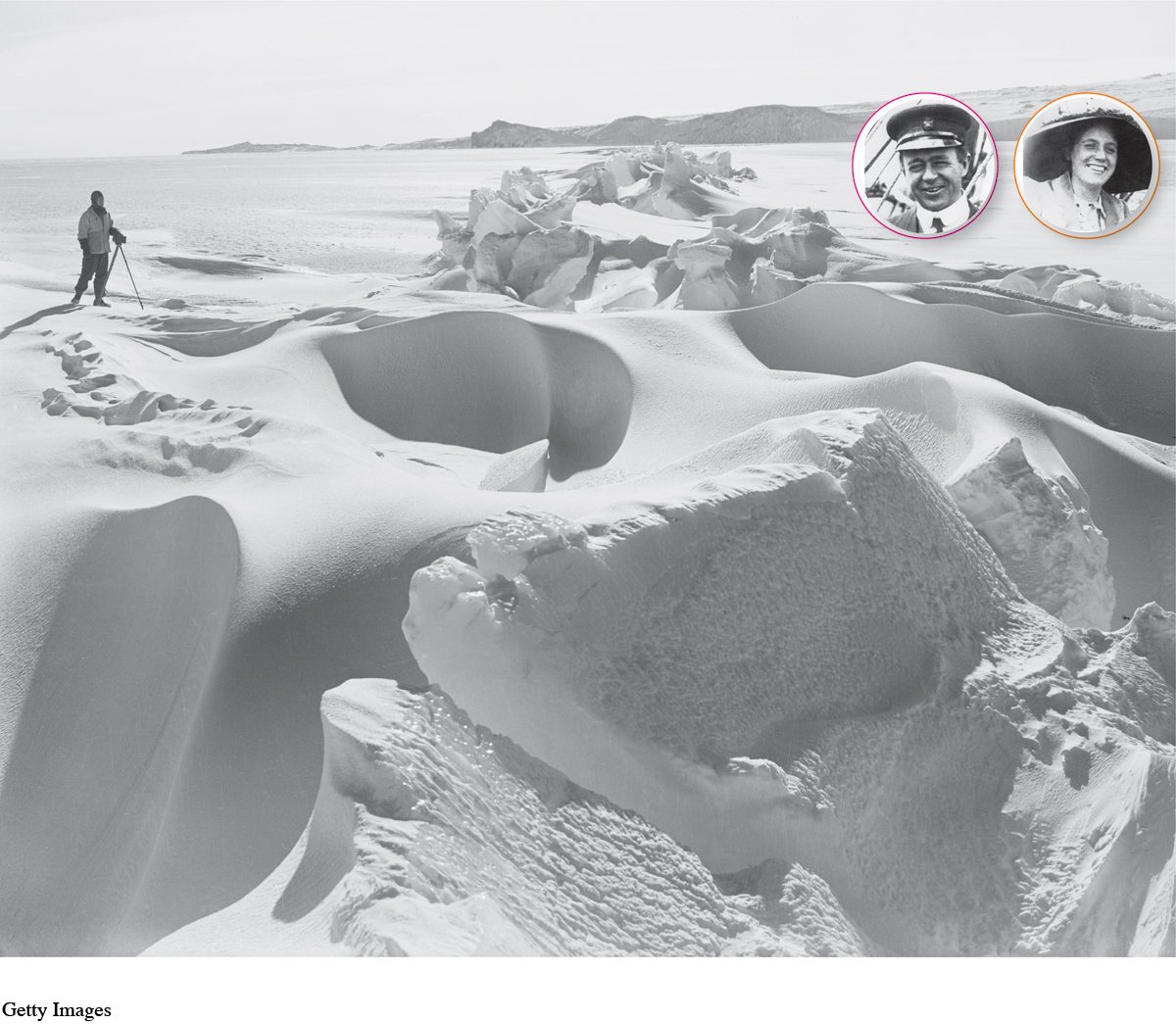Introduction to Chapter 11

The temperature was –70°.1 Although he was only a few miles from his supply depot—and salvation in the form of food and gear—the weather was impassable. Suffering from frostbite and malnutrition, Antarctic explorer Sir Robert Falcon Scott knew two things for certain: he would soon die, and a recovery team would eventually find his body. So he penned a letter to his wife, Kathleen. “To my widow,” he began. What followed is one of the most moving testimonials to romantic love ever written.
Scott had led a British team trying to be the first to reach the South Pole. Arriving at their goal on January 17, 1912, they were stunned to find a tent erected on the site. Inside was a note left by Norwegian explorer Roald Amundsen: he had beaten Scott’s team by a month. Defeated, Scott and his comrades began the 800-mile return trip, beset by snow blindness, hunger, and exhaustion. The weather worsened, and one by one his team members perished.
Huddled inside his shelter, Scott crafted a note to Kathleen that was at once passionate, practical, upbeat, and astonishingly selfless. Longing and sentiment poured from his pen: “You know I have loved you, you know my thoughts must have constantly dwelt on you . . . the worst aspect of this situation is the thought that I shall not see you again. . . . Oh what a price to pay—to forfeit the sight of your dear dear face!” He grieved the lost chance to see his son mature: “what dreams I have had of his future.” But he praised Kathleen’s practicality, and entreated her “to take the whole thing very sensibly as I am sure you will. . . . Make the boy interested in natural history if you can, it is better than games.”
Though suffering from frostbite, he remained relentlessly upbeat. “There is a painless end, so don’t worry. . . . How much better it has been than lounging in comfort at home.” In the most striking passage of all, Scott granted Kathleen romantic liberty: “Cherish no sentimental rubbish about remarriage—when the right man comes to help you in life you ought to be your happy self again. I hope I shall be a good memory.”
Eight months later a recovery team reached Scott’s encampment. Searching the remnants of his tent, they found Scott’s personal journal and his letter to Kathleen. They then built a tomb of ice and snow over the bodies of Scott and his companions, and placed a cross on top to mark the site.
In the years that followed, Scott would be honored across Britain as a tragic hero. Dozens of monuments were raised and memorial funds created to support the families of the fallen. In January 2007, Scott’s letters and journal were donated for display at the University of Cambridge. But in the dim light of his tent in March 1912, with storms raging and death approaching, Sir Robert Falcon Scott was just another human being trying to capture in writing the multifaceted complexity of romantic love. To read his words is to be reminded that love is not singular, but plural: it is many things at once, including passion, practicality, commitment, respect, sentiment, and selflessness.
Throughout time and across cultures, people have fallen in love with each other. When each of us discovers love for ourselves, we honor that legacy, sharing in an experience that is both uniquely and universally human. We also find that romantic love is a multiplicity of elements, some of which seem contradictory. Our affairs may be all about passion, but they also bring with them the rewards (and costs) of companionship. Our love for others may be selfless and giving, yet we’re driven to build and sustain only those relationships that benefit us the most, and end those that don’t. Although romance may be sentimental and otherworldly, the maintenance of love is decidedly practical. Romantic relationships are hard work, entailing constant upkeep to survive the innumerable and unforeseen challenges that threaten them.
In this chapter, the first of three on relationships, you’ll learn:
The defining characteristics of romantic love and relationships
What drives your attraction to some people and not to others
How communication changes as your romantic relationships come together . . . and fall apart
How to communicate in ways that keep your love alive
The dark side of romantic relationships and how to deal effectively with these challenges